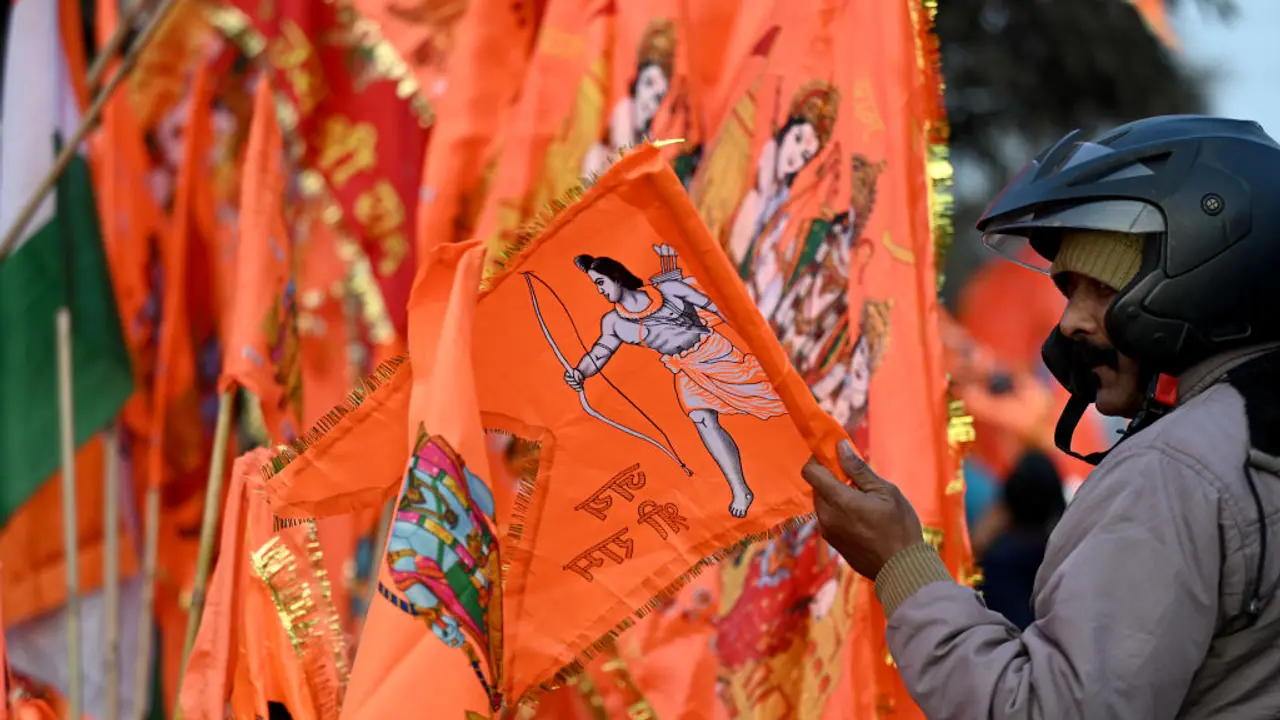A leaked UK Home Office document has highlighted Hindu nationalism and pro-Khalistan extremism as emerging forms of extremism that should be addressed by the UK government.
A leaked UK Home Office document has highlighted Hindu nationalism and pro-Khalistan extremism as emerging forms of extremism that should be addressed by the UK government. The report, however, is not yet an official policy but part of a "rapid analytical sprint" initiated by Home Secretary Yvette Cooper in August 2024 to shape the UK's counter-extremism strategy.

She said it would “map and monitor extremist trends” and “understand the evidence about what works” to “underpin a new strategic approach to countering extremism from Government.”
The document, obtained by the think tank Policy Exchange, lists nine forms of extremism in order of priority: Islamist extremism, extreme right-wing ideologies, extreme misogyny, pro-Khalistan extremism (PKE), Hindu nationalist extremism, environmental extremism, left-wing and anarchist extremism, fascination with violence, and conspiracy theories.
The sprint, authored by the Prevent programme, the Research, Information and Communications Unit (RICU), and Homeland Security, Analysis and Insight (HSAI) within the Home Office, was commissioned following riots in the summer of 2022, including the Leicester unrest between Hindu and Muslim communities.
Focus on Hindu Nationalism and Pro-Khalistan Extremism
In their report on the leaked sprint, Andrew Gilligan and Dr. Paul Stott from Policy Exchange reveal that the document allocates two pages to “two types of extremism originating from the Indian subcontinent” — pro-Khalistan extremism (PKE) and Hindu nationalist extremism, also referred to as Hindutva.
“Given the violence which occurred in Leicester in Sept 2022 between Hindus and Muslims, the govt is correct to place Hindu nationalist extremism under the spotlight — not least as knowledge of it is generally low,” they argue.
They also describe the omission of Hindu nationalism from the 2023 independent review of Prevent as a “mistake.”
The sprint states that “in Leicester key voices within both Muslim and Hindu communities played a significant role in opportunistically exploiting tensions and inciting hate among local communities”.
Regarding pro-Khalistan extremism (PKE), the sprint "offers the caveat that support for a Sikh state of Khalistan is not necessarily extremist; the problem is when this outlook leads to the advocacy of violence in support of that cause.”
It highlights a “growing portfolio of actors of concern” within the Khalistan movement and notes activism that fosters the “demonisation of Muslim communities,” particularly through allegations related to child sexual exploitation and conspiracy theories about collusion between the British and Indian governments.
The sprint does, however, “recognise concerns exist about the Indian govt’s overseas role, including accusations of Indian involvement in deadly violence against Sikhs in Canada and the US,” Gilligan and Stott further write.
Criticism Over Downplaying Islamist Threats
The sprint has faced criticism for allegedly downplaying the threat of Islamist extremism, described as the “greatest threat to national security.” Despite accounting for 67% of terrorist attacks in the UK since 2018 and comprising three-quarters of MI5’s caseload, Islamist extremism is reportedly allocated just one page in the leaked report.
Andrew Gilligan and Dr. Paul Stott argue that the report “de-centres” Islamist extremism, despite its dominance in domestic terrorist threats.
Official Response
A Home Office spokesperson emphasized that the sprint aimed to provide a comprehensive assessment of the UK's extremism landscape and lay the groundwork for new strategies.
"The counter extremism sprint sought to comprehensively assess the challenge facing our country and lay the foundations for a new approach to tackling extremism — so we can stop people being drawn towards hateful ideologies. This includes tackling Islamism and extreme right-wing ideologies, which are the most prominent today. The findings from the sprint have not been formally agreed by ministers and we are considering a wide range of potential next steps arising from that work," the spokesperson was quoted as saying in a Times of India report.
